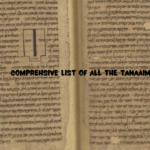Country music is known for its storytelling lyrics, heartfelt melodies, and guitar-driven sound. Over the years, the genre has evolved, integrating new influences while maintaining its core character.
One such influence is the use of the altered scale in guitar playing, which adds complexity and a modern touch to traditional country music sounds. In this article, we will explore the altered scale’s role in country guitar, its theory and application, and how it enhances solos with a distinct flair.
What is the Altered Scale?
The altered scale is a seven-note scale that comes from the melodic minor scale family. It is created by altering every possible note of the dominant scale (except for the root). This scale is also known as the “super Locrian scale” because it resembles a Locrian mode with altered notes. The scale degrees of an altered scale are as follows:
- Root
- Minor second (flat ninth)
- Augmented second (sharp ninth)
- Major third
- Augmented fourth (sharp eleventh)
- Augmented fifth (flat thirteenth)
- Minor seventh
The altered scale is typically used over dominant seventh chords, especially when these chords resolve to a tonic chord. This scale introduces a tension that seeks resolution, creating a sophisticated sound ideal for genres like jazz, fusion, and modern country music.
Altered Scale in Country Music: Why Use It?
Country guitar is often characterized by the use of major pentatonic scales, blues scales, and traditional minor scales. However, incorporating the altered scale introduces a level of complexity that pushes the boundaries of the genre. Here’s why guitarists use it:
- Enhanced Expression: The altered scale allows guitarists to express more intricate emotions. It adds dissonance and tension, which resolve beautifully in the next chord.
- Modernization of Sound: Using the altered scale in solos or licks gives a modern twist to traditional country sounds, appealing to newer audiences.
- Fusion of Styles: The altered scale brings elements from jazz and blues, creating a fusion that enriches the traditional country style.
- Improvisational Flexibility: It opens more possibilities for improvisation, offering unique melodic lines that stand out in a solo.
How to Play the Altered Scale on Guitar
To get started with the altered scale on guitar, it’s essential to understand its fingerings across the fretboard. Here’s a step-by-step approach:
- Choose a Root Note: Begin by selecting a root note on the guitar. For example, if you’re playing an altered scale in the key of A, start on the A note.
- Identify the Scale Intervals: Use the scale degrees mentioned earlier (root, flat ninth, sharp ninth, etc.) to locate the notes on the fretboard.
- Learn Multiple Positions: Practice playing the scale in various positions to cover the entire fretboard. This will help you use the altered scale seamlessly within your solos.
Here’s an example of the A altered scale played across the fretboard:
- 5th fret, low E string (Root, A)
- 6th fret, low E string (Flat ninth, B-flat)
- 7th fret, low E string (Sharp ninth, B-sharp or C)
- 6th fret, A string (Major third, D-flat)
- 7th fret, A string (Sharp eleventh, D-sharp or E-flat)
- 8th fret, D string (Flat thirteenth, F)
- 7th fret, G string (Minor seventh, G)
Applying the Altered Scale in Country Guitar Solos
The altered scale can be integrated into country guitar solos by utilizing the following techniques:
- Over Dominant Seventh Chords
- When playing over dominant seventh chords that resolve to a major or minor chord, the altered scale works well. For example, in a chord progression like G7 to C, using the G altered scale introduces a sophisticated sound before resolving to C.
- Chromatic Passing Tones
- Use chromatic tones from the altered scale to connect different notes in a solo. This approach adds a jazzy feel while keeping the country vibe intact.
- Hybrid Picking Techniques
- Combine fingerpicking and flat-picking while using the altered scale to produce distinctive tones. Hybrid picking allows for more expressive phrasing and unique note articulation.
Country Artists and Guitarists Who Use the Altered Scale
Some country guitarists have incorporated jazz-influenced playing, including the altered scale, into their solos. Here are notable artists who utilize these techniques:
- Brent Mason: Known for his hybrid picking and jazz-influenced country guitar playing, Mason often integrates altered scales to add sophistication to his solos.
- Danny Gatton: Nicknamed the “Telemaster,” Gatton combined elements of country, jazz, and rock, using the altered scale for a modern twist.
- Vince Gill: Although primarily recognized for traditional country playing, Gill occasionally uses altered notes in his solos for an extra expressive touch.
Analyzing Famous Country Songs with Altered Scale Elements
Some country songs may not explicitly use the entire altered scale, but they incorporate altered tones that add a unique character. Let’s analyze how these altered elements come into play:
- “Sugarfoot Rag” by Hank Garland
- Hank Garland was known for his jazz-country fusion. In “Sugarfoot Rag,” he uses chromaticism and altered notes, demonstrating how the altered scale can enhance traditional country music.
- “Working Man Blues” by Merle Haggard
- Roy Nichols, Haggard’s guitarist, uses jazz-influenced phrases throughout his solo. Although not a strict altered scale, the use of chromatic tones adds a similar complexity.
Practical Exercises to Master the Altered Scale
To get comfortable with the altered scale, practice these exercises:
- Scale Drills Across All Strings
- Play the altered scale on each string, focusing on transitioning smoothly between positions.
- Integrate with Major Pentatonic
- Alternate between the major pentatonic scale and the altered scale within the same solo. This contrast will help develop a sense of tension and release.
- Soloing Practice Over Backing Tracks
- Use a backing track with a dominant chord progression and practice applying the altered scale. Focus on resolving the tension at the right moments.
Exploring the Fusion of Jazz, Blues, and Country Through the Altered Scale
The altered scale is one of the gateways through which country guitar blends with jazz and blues. The combination of these genres results in a rich, multi-dimensional style. Here’s how each genre influences the use of the altered scale:
- Jazz Influence
- Jazz musicians frequently use the altered scale for improvisation. When applied to country music, it brings the same level of spontaneity and creativity.
- Blues Influence
- The blues scale already contains some chromatic elements that can be enhanced by incorporating notes from the altered scale. This approach bridges traditional country blues with modern jazz-country fusion.
Tips for Integrating the Altered Scale Without Losing the Country Feel
While the altered scale can modernize the sound, it’s essential to maintain the country character:
- Start with Traditional Techniques
- Begin your solos with familiar country techniques, such as bends and double stops, before introducing altered notes.
- Use Sparingly for Emphasis
- Don’t overuse the altered scale. Instead, use it to highlight specific moments in a solo where you want to add tension or create a dramatic effect.
- Mix with Bluegrass Elements
- Incorporating bluegrass-style picking or fiddle licks can help retain the country vibe while experimenting with jazzier tones.
Common Mistakes When Using the Altered Scale in Country Music
Here are a few pitfalls to avoid:
- Overuse of Chromaticism
- While chromatic tones are a key feature of the altered scale, too much can detract from the melody’s clarity. Strike a balance between traditional sounds and modern elements.
- Ignoring Resolution
- The altered scale’s dissonance requires careful resolution. Ensure that your lines resolve in a way that feels natural to the country genre.
- Playing Outside the Genre’s Context
- Keep the audience in mind. Overly complex jazz lines may alienate listeners who prefer a more traditional country style.
FAQs
1. What is the altered scale, and how does it differ from other scales in country music? The altered scale is a seven-note scale derived from the melodic minor scale family. It differs from the major pentatonic and blues scales commonly used in country music by introducing chromatic alterations that add tension and complexity.
2. How can beginners start using the altered scale in their country guitar playing? Beginners can start by integrating one or two altered notes into their solos over dominant seventh chords. Practice switching between the major pentatonic and altered scales to develop a feel for the scale’s unique sound.
3. Can the altered scale be used in traditional country songs? Yes, it can be used subtly to add a modern touch to traditional songs. The key is to incorporate it tastefully and resolve the tension in a way that maintains the song’s country essence.
4. How does the altered scale improve improvisation skills? The altered scale offers new melodic possibilities and introduces tension that needs resolution, encouraging guitarists to explore creative ways to navigate their solos.
Conclusion
The altered scale guitar in country music is more than just a modern twist; it represents a fusion of influences that enriches the genre. By introducing chromaticism and tension, it adds depth to solos, offering distinctive flavors that set guitarists apart.
With careful application, the altered scale can maintain the essence of country music while enhancing it with elements borrowed from jazz and blues. Whether you’re a beginner exploring new sounds or an experienced player looking to add sophistication to your solos, the altered scale can elevate your playing.

















